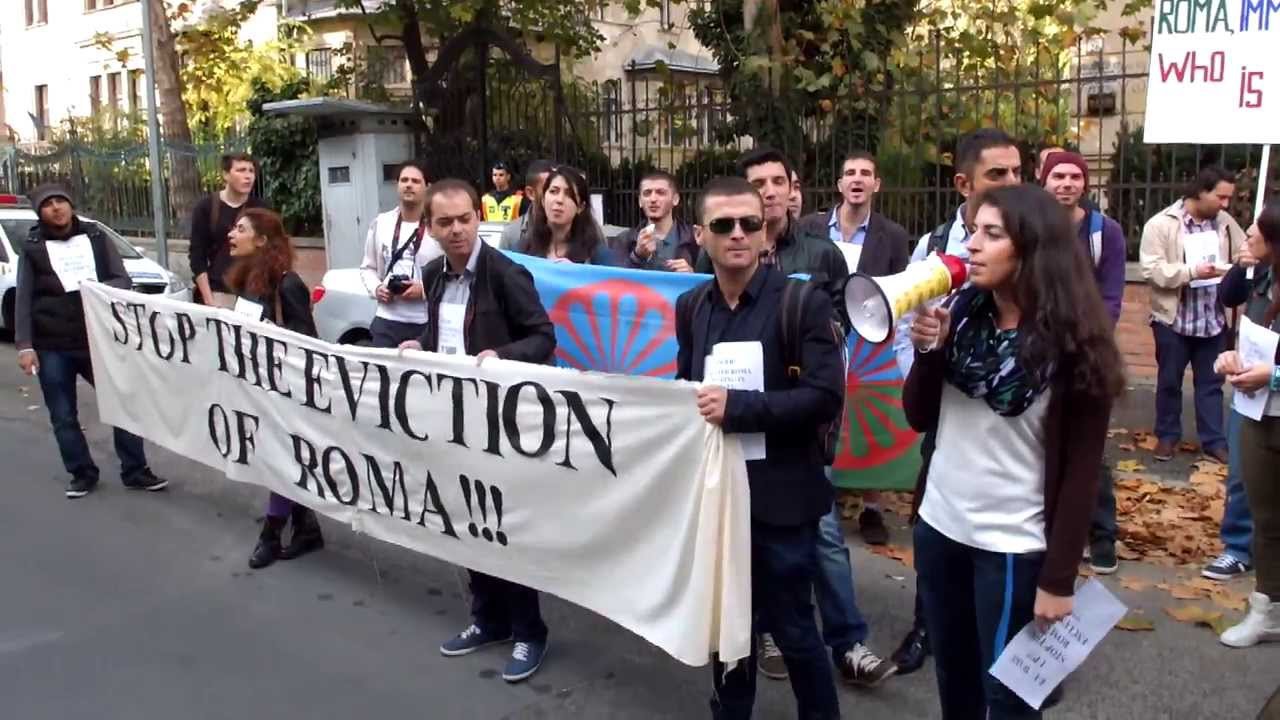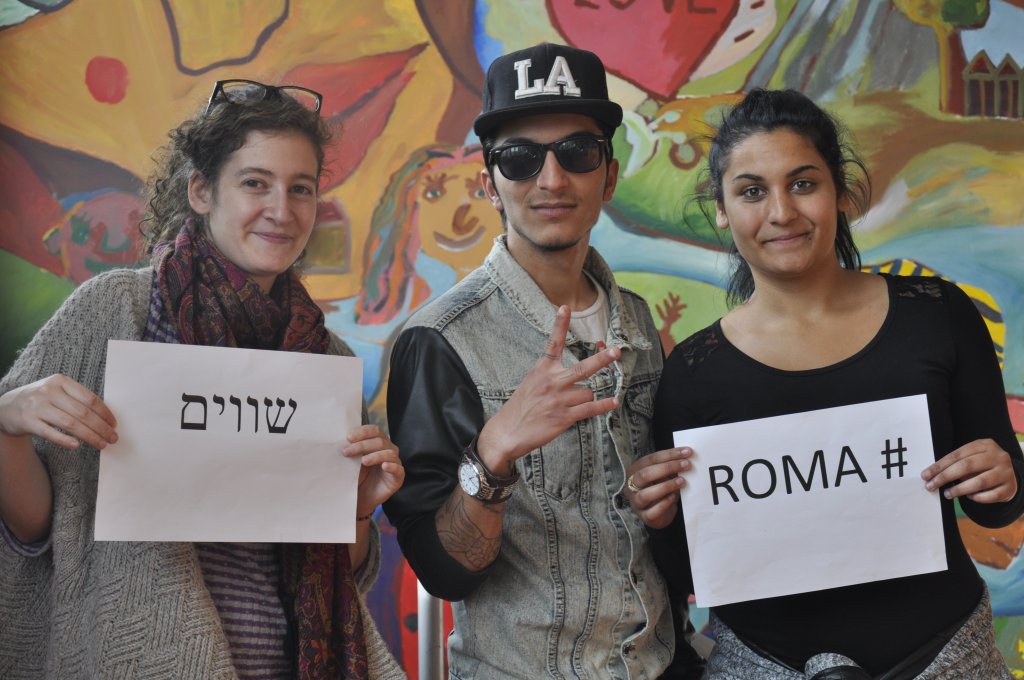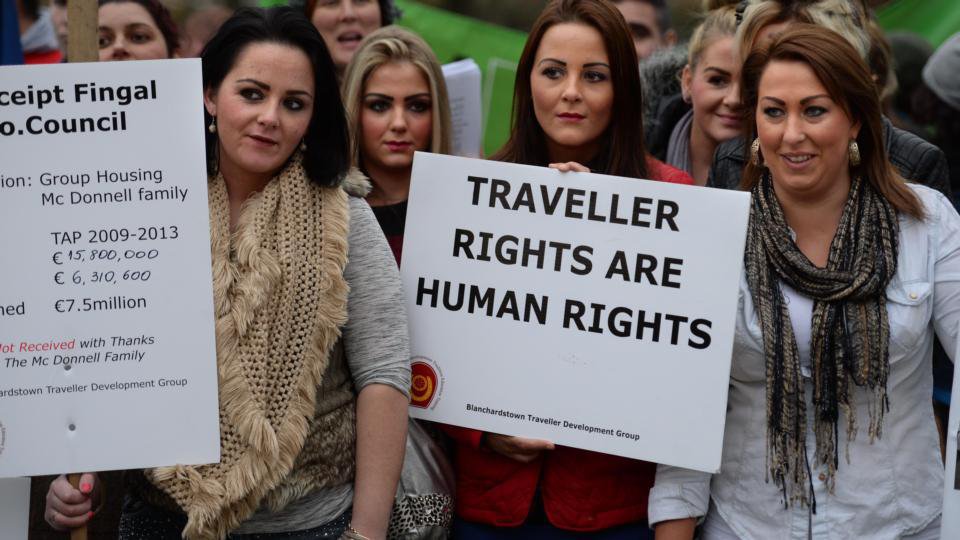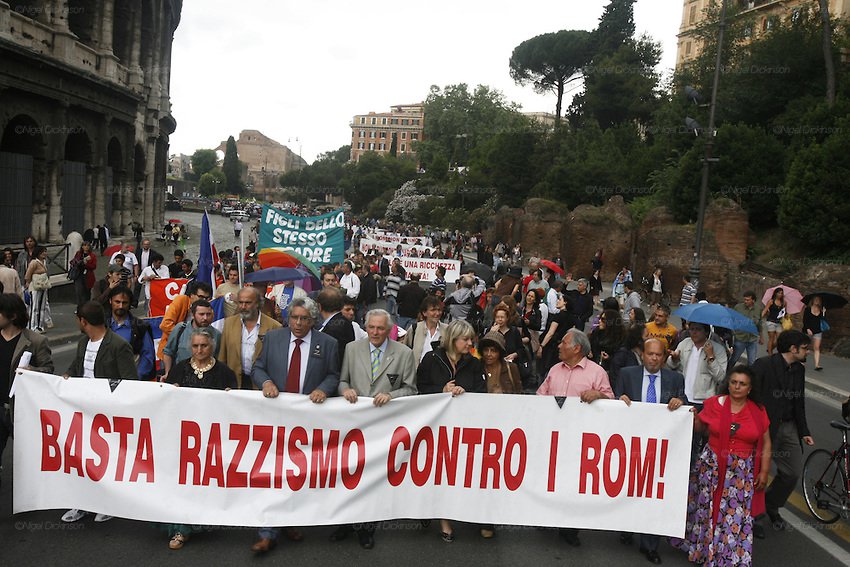Look back in anger: 2016 through a Roma rights lens (part 1)
09 January 2017
The sheer shittiness of 2016 was captured in the end of year video by the comedian John Oliver. As Gary Younge wrote recently, this was a year in which “vulgarity, divisiveness and exclusion won – a triumph for dystopian visions of race, nation and ethnicity … Immigrants and minorities are fearful, bigots are emboldened, discourse is coarsened.”
As far as Roma rights were concerned, 2016 witnessed more of the same: anti-Roma hate-speech and hate crime, discrimination, segregation and more mass evictions. But there were also victories in the courts, there was protest, dissent and resistance; anti-Gypsyism did not go unchallenged. As we leave this turd of a year behind us one thing is clear, the fight goes on and the struggle to defend human rights and combat racism has assumed an ever-greater urgency. In the first of a two-part review of 2016 here are some of the stories not covered by mainstream media reflections on the past year.
In a particularly tragic start to 2016, last January saw five young Romani children perish in fires and freezing cold in shacks in Košice’s Luník IX and the Mašličkovo settlement in Slovakia. As we stated at the time: “These casualties are the latest victims of more than two decades of willful and discriminatory neglect in housing policies for marginalized Roma communities in Slovakia. Five preventable deaths, on top of years of forced evictions and demolitions in all weathers make a mockery of all the well-intended Euro-blather about Roma inclusion by 2020.”
In Hungary despite a court ruling on 25 January that the municipality of Miskolc violated the principle of non-discrimination by forcing out Roma residents, the mayor of Miskolc remained defiant and determined to continue with plans to “eliminate slums on the city’s outskirts,” which is ruling party doublespeak for evicting and expelling Roma from Miskolc. He described the evictions and demolition of the “numbered streets” to make way for a soccer stadium parking lot as “one of the most important of the city’s policies.”

Mass evictions of Roma continued apace in France throughout 2016 as if it were a matter of national pride. On 3 February, 300 Roma were forced from their informal settlement in Paris, in a completely illegal eviction, which left most of them, including the very old and the very young, cast out on the street. This inhumane action drew criticism from the Secretary General of the Council of Europe, Thorbjørn Jagland, who called on the French authorities to provide those evicted with adequate, alternative accommodation. In a public statement, the ERRC called on Paris authorities to halt all winter evictions.

Photo credit: Redjade Magyarországon
On 26 February, Amnesty International, Associazione 21 Luglio and the European Roma Rights Centre issued a joint statement to protest against four years of utter failure of the National Roma Integration Strategy in Italy. Such was the concern about rights violations, forced evictions and endemic discrimination against Roma that the organisations called on the European Commission to initiate infringement proceedings against Italy.
In a landmark decision on 17 March, an Italian court confirmed that a Romani woman of Bosnian origin, born and raised in Italy is in fact an Italian citizen. Earlier she had been refused citizenship on a technicality, because her parents like many other refugees fleeing war in Yugoslavia, failed to meet registration requirements. Such technicalities left many Romani children born in Italy at risk of statelessness. The ERRC supported this case against the Ministry of Interior as another step in our efforts to end Roma statelessness in Europe.
Marking World Water Day on 22 March, ERRC staffers Marek Szilvasi and Radost Zaharieva reported from the field in France on the situation of Roma and access to clean water and sanitation. They found that basic human rights standards are flouted in the perpetual cycle of forcible evictions; by the time the authorities have been taken to task to provide basic services, the settlement in question gets demolished, the inhabitants evicted and moved on. The lack of water and basic sanitation takes a harsh toll on the health of young and old alike: people are plagued with digestive problems, diarrhoea, colic and hepatitis; skin diseases such as acne, eczema, scabies, lice, and impetigo are legion.
Twice within the space of one week in March, the European Court of Human Rights issued emergency orders to halt evictions in cases prepared by the ERRC and partners. On 25 March, the Court moved to prevent a disabled Romani woman and her daughter being evicted from an emergency shelter by the City of Rome. Then on 31 March, within two days of receiving a formal request, instructed the Romanian government to stop plans to evict a Romani community in Eforie. This would have been the third in a series of evictions that began in 2013, banishing the community from the heart of a historically integrated neighbourhood to containers on the outskirts of town.

On 1 April, Slovak Interior Ministry investigators stopped prosecutions in all cases against police officers and announced that there was no torture, no illegal entry into homes and no inappropriate coercion during a notoriously violent police raid in the Roma settlement of Budulovská in the town of Moldava nad Bodvou in Moldava back in June 2013, in a case described by the Ombudswoman as “shameful for Slovakia.”
A census report published by the ERRC with the Ligue des droits de l’Homme on 8 April revealed that more than 3,600 Roma were evicted across France in the first quarter of 2016. In France there is no winter moratorium on forced evictions for Roma, and in almost half of the cases, those evicted were forced out onto the streets without any offer of emergency shelter.

Photo credit: Mariann Jó
On 22 April, the self-described Bulgarian ‘nationalist’ who filmed himself racially abusing and viciously assaulting 17-year-old Romani youth Mitko and shared it on social networks, was released from police custody on bail of less than 300 EUR, only facing charges of hooliganism. Outrage at the YouTube video quickly turned to solidarity with the 17-year-old Roma youth, beaten for saying he considered himself equal to his racist aggressor. Thousands supported the #RomaAreEqual campaign launched by ERRC, putting a spotlight on the issue of racist violence, and the abject failure of the Bulgarian authorities to investigate racist motivation in crimes against Roma and other minorities.
In response to a collective complaint lodged by the ERRC with the Irish Traveller Movement, on 16 May the European Committee of Social Rights (ECSR) unanimously found the Irish Government in violation of Article 16 of the Revised European Social Charter on the following grounds: provision of accommodation for Travellers remains insufficient; many Traveller sites are in an inadequate condition; and Travellers continue to be evicted without the necessary safeguards.

Photo credit: Dara Mac Dónaill/The Irish Times
The European Commission finally launched infringement proceedings against Hungary for school segregation in May. The Hungarian government feigned bafflement, described the procedure as “absurd”, and claimed that despite the efforts of the Minister of Human Resources Zoltán Balog to clarify the situation in person in Brussels last week, they still “do not understand what the European Commission’s specific problem is.” As we reported on 30 May, “the government’s dissimilation fooled nobody, because racial segregation in schools has got to be Hungary’s worst kept secret. Furthermore, these politicians are fully aware of the struggle waged for over a decade by the Chance for Children Foundation (CFCF) against this pernicious form of discrimination.”
The ECRI report on Italy, published on 7 June, fully endorsed submissions by ERRC and confirmed that Roma remain targets of hate speech and hate crime, continue to live in conditions of acute marginalisation and discrimination, and are effectively denied access to housing and other social rights. As for the National Roma Integration Strategy the assessment was withering: ECRI was concerned that implementation was largely left to the discretion of regional authorities; quantifiable objectives were missing from every sphere of the strategy; no specific funding was allocated and there was a “lack of sound arrangements for monitoring and evaluating the work done.”

Despite Romania’s miserable rankings statistics on many poverty and social exclusion indicators, Philip Alston, the UN Special Rapporteur on extreme poverty and human rights, stated on 24 June that “Many Romanian officials are in denial about the extent of poverty and especially about the systemic and deep-rooted discrimination against the extremely poor, particularly the Roma, as illustrated by cases of forced evictions and police abuse.” In his report on his mission to Romania, the Special Rapporteur argued that programs and initiatives are doomed to fail unless there is a sustained focus to tackle inequality.
On 30 June, shocking testimony surfaced of brutal treatment by medical staff of a Romani woman in childbirth in Macedonia surfaced at the same time as news that provision for Roma has been slashed from the Ministry of Health’s 2016 Programme for Health Protection of Mothers and Children. The woman was insulted for screaming and told, ‘Shame on you, and you knew how to make five babies, you Gypsies are good only for that!’ She was then slapped across the face. When she asked why, she was told, “because you squeal like a stuck pig,” and got slapped again.
(To be continued)




